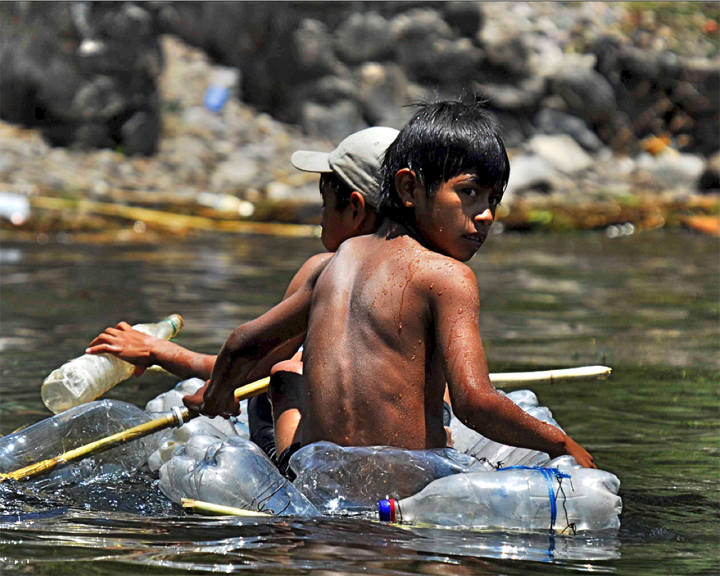

Sharing success in water initiatives

Some 780 million people worldwide do not have access to clean water and almost 2.5 billion do not have access to adequate sanitation. Six to eight million people die annually from the consequences of disasters and water-related diseases, and the lack of access to safe drinking water and sanitation may constitute a barrier to achieving several Millennium Development Goals (MDGs).
To mark World Water Day on March 22nd, the MDG Achievement Fund (MDG-F) shared good practices from its work on water governance issues at a special event hosted by the government of Spain, “Achieving the MDGs through Governance of Water and Sanitation: the Experience of the MDG-F”, a side event to the High Level Interactive Dialogue of the General Assembly on Water Cooperation.
In Bosnia and Herzegovina, 50,000 citizens have received improved water supply services, including better water quality and quantity, while in Nicaragua, water and sanitation projects implemented in schools and communities on the Caribbean Coast improved access and water supply sources for almost 17,000 students.
Promoting the democratic governance of water resources
These initiatives are being spearheaded by the MDG-F through 11 joint programmes from its Democratic Economic Governance thematic window. These focus mainly on strengthening capacities to manage water provision and water quality by including governments and citizens, especially the poorest, in plans and policies regarding water.
Citizens from Albania, Angola, Bosnia and Herzegovina, Ecuador, Guatemala, Honduras, Mexico, Nicaragua, Panama, Paraguay and the Philippines have benefited from our Joint Programmes, which, with an allocation of almost US$60 millions, are contributing directly to meeting the MDG 7 target of halving the number of people without sustainable access to safe drinking water by 2015.
One of the key areas of work of the MDG-F has been on Water Governance, recognizing that the democratic economic governance of utilities is a critical challenge for developing countries because universal and affordable access to such services is crucial for progress towards the Millennium Development Goals.
Our programmes work in a variety of areas, including the development of new and innovative mechanisms for the financing of water supply and sanitation infrastructure, the involvement of civil society representatives and the enhancement of the role of women in relevant planning and policy making.
They also focus on capacity building and support to regulatory revisions and decentralisation of water supply and sanitation responsibilities, along with the strengthening of sector governance. The programmes have achieved valuable results in improving access to water and sanitation as well as in attracting investments in water supply infrastructure.
Successes around the world
In Bosnia and Herzegovina, 260,000 citizens benefitted from the programme’s activities and 50,000 have received improved water supply services. Also, in the field of infrastructure investment, we directed US$1.25 million to small infrastructure projects to increase water supply coverage.
In Guatemala, a water programme in San Rafael obtained impressive results, such as a significant decrease in gastrointestinal diseases, a strengthening of the community’s organizational culture and an increase in residents’ environmental awareness. In Honduras, nearly 35,000 people obtained access to water and sanitation.
In Mexico, the improvement of water and sanitation services in schools benefited 2,317 students. In Nicaragua, water and sanitation projects implemented in schools and communities on the Caribbean Coast improved access and water supply sources for almost 17,000; some 4,750 people benefited in Ecuador.
Nine communities in Panama have participated in the design and construction of water infrastructure and now have access to safe water, and water management committees have been strengthened, trained and provided with technical equipment to maintain and ensure the sustainability of the system’s infrastructure.
And in Angola, local governments of the Luanda and Moxico provinces are promoting a network of autonomous units of water and sanitation utilities, which are owned and managed by citizen groups. Over 120,000 people will gain direct access to safe drinking water and adequate sanitation through this initiative, reducing their exposure to serious health risks.
Towards achieving the MDGs
In December 2006, the United Nations and the Government of Spain signed a landmark agreement establishing the MDG Achievement Fund (MDG-F) – a global initiative aimed at tackling poverty and supporting national efforts to achieve the Millennium Development Goals (MDGs).
With US$900 million channeled towards key development goals, the focus is on triggering real change in people’s lives and influencing public policy, making it more responsive to the needs of the poor. The MDG-F has embraced a multi-sectoral approach that builds on the expertise of over 25 UN agencies, bringing them together to build on their comparative advantage.